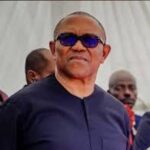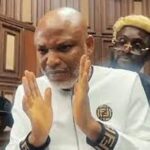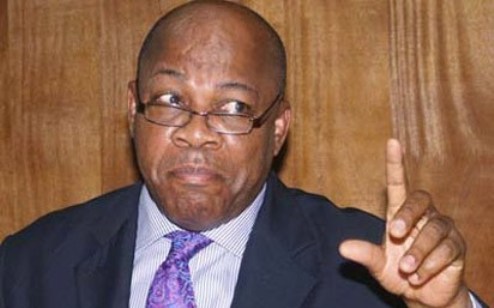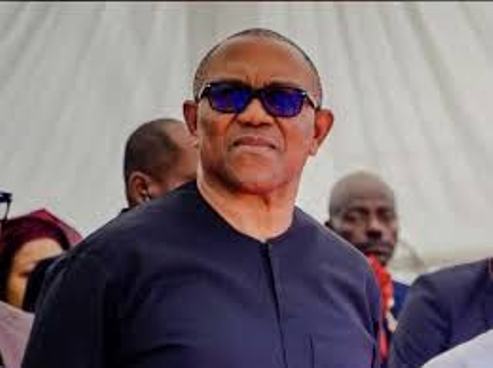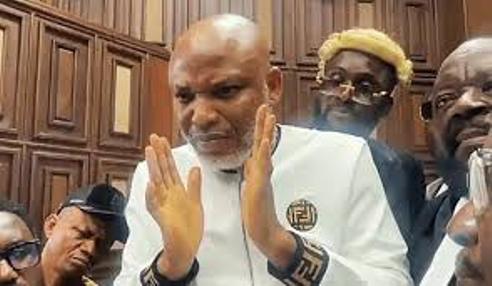LAGOS APRIL 7TH (NEWSRANGERS)-More prominent lawyers are lining up on the side of the argument championed by former President of the Nigerian Bar Association( NBA), Olisa Agbakoba (SAN) that a presidential candidate must obtain 25 percent in the Federal Capital Territory(FCT), as a requirement to be declared winner of an election at that category.
The contentious issue which is one of the legs of the suit filed by Peter Obi, the presidential candidate of the Labour Party (LP) in his challenge of the declaration of Bola Ahmed Tinubu as the winner of the February 25 presidential election, is provided in section 134 (1) (b) and (2) of the 1999 constitution.
Agbakoba, had on Wednesday, said his understanding of the provision was that a candidate must not only score 25 per cent in the 25 states in Nigeria, but in Abuja, however said that he was not speaking for the Presidential Election Petition Tribunal (PEPT), where the matter had since gone.
He said: “134 (2); It applies literally, because the rule of interpretation says if you read something and it’s so clear to you, then you don’t need to interpret it. The thing says you must win a quarter of the votes in ⅔ of 36 states AND the…and then what do you want to say? The answer is obvious.
“… I have broken it down. You want to put words in my mouth, which I won’t accept. It’s so simple, you get a quarter of the votes in of 24 states. That’s what the law says, which is 24. So that’s one part of it.
It goes on to say, ‘AND’. What does that mean? ‘AND the FCT’. So as far as I am concerned, you must also win 25% in the FCT. But that’s not for me to say because I would be pre-judging what’s before the tribunal. So we think the tribunal can answer this question quite easily in one hour. That’s my point. Quite easily, it’s not a difficult question to resolve,” he said.
Aligning himself with Agbakoba, who had actually written to INEC before the elections to clarify its position on the true interpretation of the section, Amobi Nzelu, who described the issue as a “time bomb,” said: “One major concern which is a time bomb is section 134 of the 1999 Constitution, which prescribed the requirements to be met by a presidential candidate to become the president of Nigeria. You can see that this section of the law is explicit enough as to whether the two-thirds votes a candidate must secure as mentioned in the law, would include or exclude the Federal Capital Territory (FCT), Abuja.
“For instance, to be declared winner of the presidential election, a candidate must win a quarter of votes in 24 states – which makes up the two-thirds– as well as the FCT, or without the FCT. Does this mean that the Federal Capital Territory, Abuja is incorporated in the 24 states? Or…does it mean that the presidential candidate must also score not less than one-quarter of the votes cast at the election at the Federal Capital Territory, Abuja?
“Can a candidate that scored not less than one-quarter of the votes cast at the election in 36 states of the federation but fails to score one-quarter of the votes cast at the election at the Federal Capital Territory be duly elected as president of Nigeria? This is a serious matter and it is a time bomb because somebody can win in other states, but may not win in the FCT. I think the issue needs to be cleared by INEC.
Mike Ozekhome, a Professor of Law, in his own intervention, said: said: “ There is no doubt that the provisions of section 134(2)(b) of the Constitution is rooted in mathematics. It requires that a winning presidential candidate shall have “not less than one-quarter of the votes at the election in each of at least two-third of all the states in the Federation AND the Federal Capital Territory Abuja”. (Emphasis supplied).
“As lawyers, we should not shy away from embarking on this mathematical pathway to resolve the steaming controversy. Yes, mathematics is part of lawyers’ job in resolving disputes; and Nigerian courts are not strangers to mathematical judgments. After all, the 1979 presidential election involving Shagari and Awolowo was wholly litigated, won and lost on the basis of the Supreme Court’s mathematical interpretation of what amounted then to 2/3 of the then 19 states of the federation.
“The Supreme Court, in delivering judgment in favour of Shagari, ruled that the requirement of votes to win the presidential election was 25% in 12 states, and no more. It cautiously avoided the attendant fractionalisation of Kano State, so as to avoid absurdity in interpretation. It is my considered opinion that the scope of consideration of the FCT, Abuja, as a state, only applies to the enjoyment and vesting of executive, legislative and judicial powers by relevant bodies in the FCT. It does not apply to all matters, extents, and for all purposes.
“Further, an interpretation that Section 299 of the Constitution applies for all purposes is too narrow. It is not holistic or inclusive. It will render many other parts of the Constitution redundant, futile, unproductive, meaningless and therefore, unnecessary. Certainly, such could not have been the intention of the legislature or law makers.
“Section 134(2) of the Constitution must therefore be interpreted to mean that for a candidate to win the Presidential election, such a candidate must obtain 25% of the votes cast in two-thirds of all the States in the Federation (24 states); AND further, in the FCT, Abuja. This is a compulsory requirement for a valid return as president. It seems to me that INEC was not properly legally guided when it declared a president-elect.”
Whirlwind
